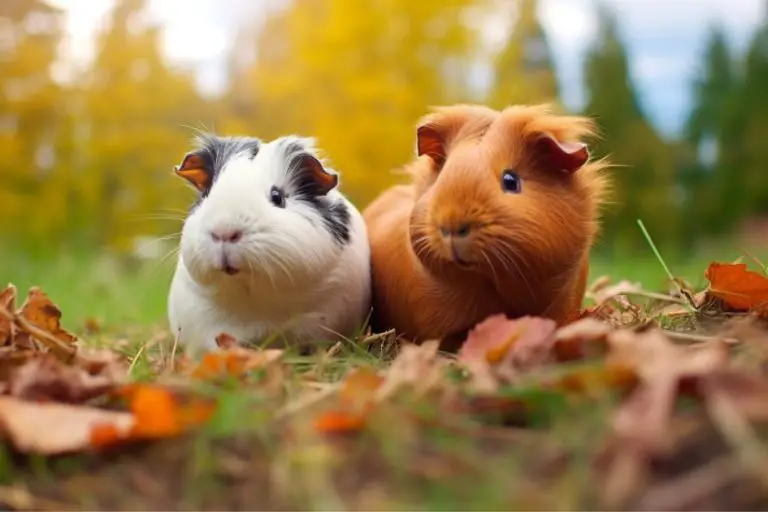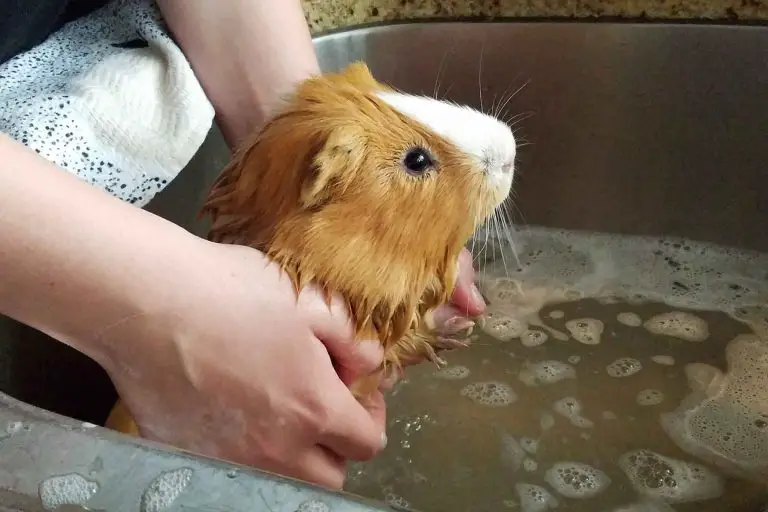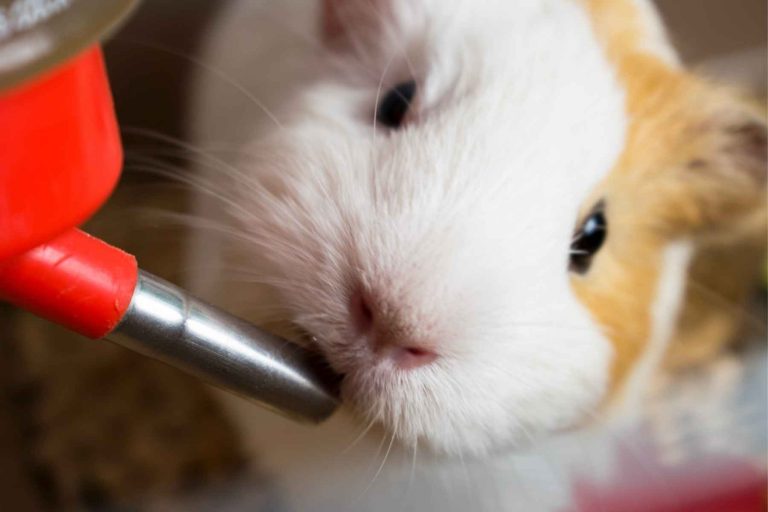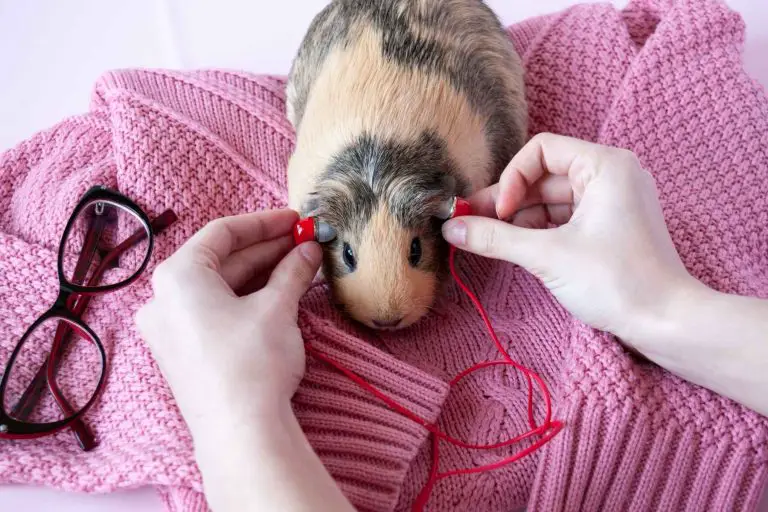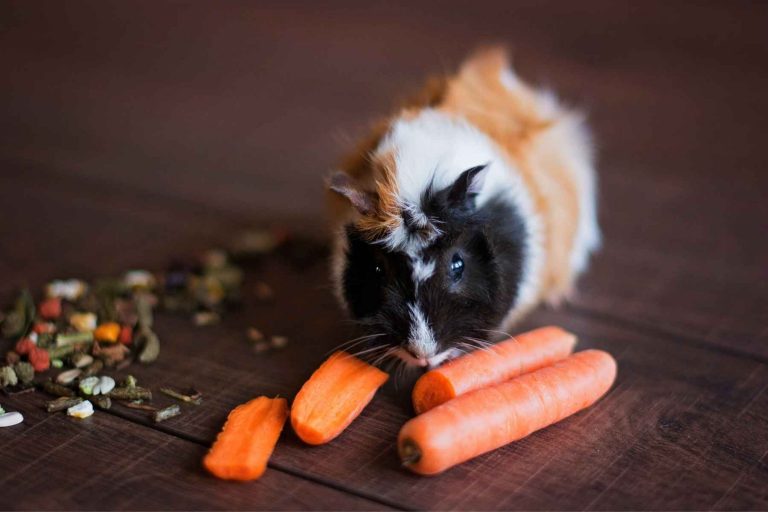How Long Do Guinea Pigs Live?
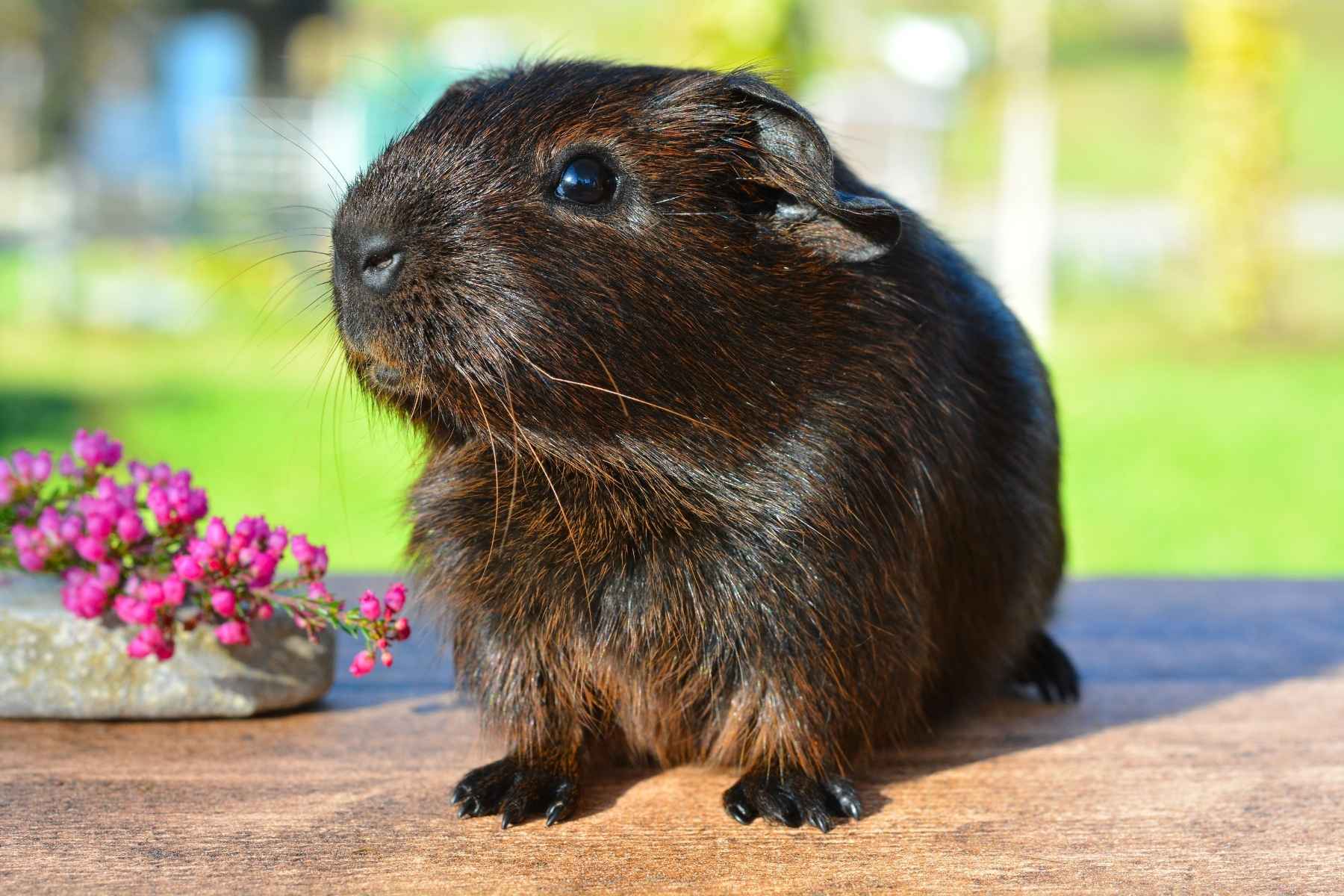
Guinea pigs are some of the most affectionate and rewarding pets you can own. So naturally, you might wonder how much time you have to spend with yours.
How long your guinea pig lives depends on their genetics, diet, and even how much enrichment they receive. Guinea pigs generally live 4 to 7 years in captivity, although some can live much longer. However, their lifespan is significantly shorter in the wild due to all the dangers present.
Below, this article covers everything you should know about your furry friend’s lifespan. And how to ensure your time together is as long as possible.
What Affects a Guinea Pig’s Lifespan?
Guinea pigs usually live around 4 to 7 years—which is a pretty wide range. And the reason it varies so much is that your pet’s longevity depends on several variables.
It’s always important to take care of your furry friend’s nutrition and enclosure. But you may not realize just how vital mental health and enrichment can also be.
Here are the factors that most affect a guinea pig’s life span:
- Diet: Like with humans, what your guinea pig eats dramatically affects their well-being. A balanced diet can prevent health issues and prolong their life.
- Genetics: Some guinea pig breeds are predisposed to longer lives. Silkies and Peruvians, in particular, are known for their longevity.
- Environment: Properly setting up your rodent’s enclosure is crucial for their long-term health. The best beddings are paper-based, fleece, or aspen. Additionally, their cage’s temperature should always stay above 60°F.
- Enrichment: Keeping a guinea pig active and stimulated is a sure way to keep them youthful. Provide your pet with plenty of toys and consider getting them a friend.
- Cleanliness: Keeping your rodent’s enclosure clean helps reduce their stress. Not to mention a dirty cage makes infection and illness more likely.
How To Improve Your Guinea Pig’s Lifespan
You probably want to do anything possible to extend your furry friend’s lifetime. And thankfully, there are plenty of ways to keep them healthy and happy.
Here is how to help improve your pet’s life expectancy:
- Get your pet a friend: Guinea pigs are naturally social creatures that thrive in groups. Even males can learn to live happily together, a quality rare among animals.
- Provide a balanced diet: Make sure your pet is fed quality food that meets their needs. Most name-brand blends have everything that a guinea pig needs nutrition-wise.
- Keep their enclosure clean: A tidy cage means a happy and healthy rodent. If possible, spot clean their habitat daily and completely spruce it up once a week.
- Weigh them often: Try to get your rodent on a scale at least weekly. That way, you can catch any weight issues as early as possible.
- Pamper your pet: Rodents like to be spoiled too! So, provide your guinea pig with plenty of bonding opportunities. Playing with and grooming your pet can do wonders for their well-being.
- Regular veterinarian visits: Getting your pet checked at the vet regularly prevents any health issues from going unnoticed. If possible, find a vet that specializes in small mammals.
- Give them toys: Toys provide a couple of major benefits for your furry pal. Firstly, they help keep your rodent’s teeth, and nails filed down. Additionally, they’re an excellent source of fun and enrichment.
How Old Can Guinea Pigs Get?
Guinea pigs enjoy relatively long lives for rodents, with most pets living happily for 4 to 7 years.
Still, you might be curious just how long a guinea pig’s life span can ultimately be.
The world record for the longest living guinea pig ever was 14 years and ten months—held by a rodent named Snowball who lived in the UK. But while that’s the official record, others have been claimed to be even older.
Snowball is definitely an outlier compared to other pets. And it’s rare for these rodents to stick around longer than 12 years in any situation. But that doesn’t mean your furry friend can’t live for a surprisingly long time.
Living in captivity eliminates many threats to a guinea pig’s longevity. Plus, the nutrition pet food provides often beats a wild diet. So with proper care and regular vet visits, your pet may even reach 8 or 9 years old.
But remember, there’s only so much we can do to lengthen the time we get with our pets. So it’s all the more important to love them while they’re here.
What Happens as Guinea Pigs Get Older?
Just like humans, guinea pigs change as they grow older.
As your furry pal approaches their sunset years, some tasks may get challenging for them to do. And over time, they can even develop age-related health problems.
Below is a list of signs that your guinea pig is becoming a senior:
- Slowing down: Your pet will likely grow less rambunctious and active with age. Often, these rodents also start sleeping more.
- More health issues: As they get older, the immune system of these rodents gets weaker. As a result, your senior guinea pig might require more frequent trips to the vet.
- Graying fur: Like humans, guinea pig hair grays over time. Most owners first notice this color change around the nose and mouth of their pet.
- Loss of weight/appetite: Guinea pigs tend to slim down and eat less as they age. Still, take your pet to the vet if you notice sudden, dramatic weight loss.
If your furry friend is on the older side, try to provide them with some extra love and care. Bonding and socialization are great ways to keep our pets youthful.
Additionally, weigh your rodent often to help detect any subtle illnesses early.
How Long Do Guinea Pigs Live in The Wild?
As you might expect, the lifespan of domestic and wild guinea pigs differs massively.
In nature, wild guinea pigs face an endless onslaught of survival challenges. Coyotes and other predators are constantly hunting for them. Plus, food and water can often be scarce.
As a result, these rodents usually only last 1 to 4 years in the forest—considerably less time than when kept in captivity.
In contrast, pet guinea pigs enjoy a safer and more luxurious lifestyle. After all, responsible owners provide all the food and resources they need. Not to mention there aren’t many natural predators to guinea pigs in the homes of humans.
With proper care, some pet guinea pigs can even reach the ripe old age of 8 or 9. And when they pass on, it’s typically due to natural causes.
It’s also worth noting that domestic guinea pigs are a unique species not found in nature. However, wild species of guinea pigs roam much of South America.
The Life Cycle of Guinea Pigs
Throughout your guinea pig’s life, they may change quite a lot. And the reason why is that these rodents go through distinct life stages.
Understanding where your pet is in their life cycle helps you better address their needs. Plus, it can give you a sense of how much time you still have with your furry pal.
Below are the main stages of a guinea pig’s life:
- Pup (from birth to 6 weeks): Guinea pigs should be with their mothers while they are pups. These rodents can breastfeed for up to six weeks, but it often only lasts for three. If a baby gets rejected by its mother, humans can care for them instead.
- Young (6 weeks to 6 months): When they’re young, these rodents are like hyper kittens that want to explore everything. Both males and females reach sexual maturity around 2 to 3 months of age.
- Adult (6 months to 5 years): At six months, your guinea pig is more or less fully mature and able to breed. However, they may continue growing in size until around one year of age.
- Senior (5 years or more): As your furry friend reaches their twilight years, you might notice some changes. They may struggle more to get around. Or start to spend a lot of their day sleeping.
Which Guinea Pig Breeds Live Longest?
Similar to dogs, the various guinea pig breeds have different expected lifespans.
It’s tricky to measure since there’s little scientific research regarding the subject. However, most experts believe that the Peruvian and Sheltie (Silkie) guinea pigs have the most longevity.
The average life of most breeds lies around 4 to 7 years. In contrast, many owners have reported their Shelties and Peruvians making it to 8 years old. No one is sure why this is the case. But interestingly, both of these long-living breeds have exceptionally lengthy hair.
At the other end of the spectrum, there are also guinea pigs with shorter life expectancies.
In particular, Skinny pigs and Baldwin guinea pigs tend to get less time with their owners. And these two breeds have something else in common – both almost entirely lack hair.
Baldwin and Skinny pigs can sometimes live as long as furrier breeds. However, their hairlessness makes health issues, like fungal infection, more common. So if you plan on getting one as a pet, ensure you regularly check them for skin problems.
Final Thoughts
Typically, the lifespan of pet guinea pigs is around 4 to 7 years. Although, some owners have reported their pets reaching ten years or more.
Providing enrichment, a balanced diet, and a clean enclosure are all ways to improve their life span.

